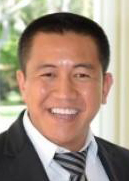A Quote by Sara Zarr
When a young reader tells you that they'd never finished a book outside of school until they read yours, or that they really needed to hear something that one of your characters says or thinks... that's just rewarding and humbling.
Related Quotes
Make sure your characters are worth spending ten hours with. That’s how long it takes to read a book. Reading a book is like being trapped in a room for ten hours with those characters. Think of your main characters as dinner guests. Would your friends want to spend ten hours with the characters you’ve created? Your characters can be loveable, or they can be evil, but they’d better be compelling. If not, your reader will be bored and leave.
Every reader, as he reads, is actually the reader of himself. The writer's work is only a kind of optical instrument he provides the reader so he can discern what he might never have seen in himself without this book. The reader's recognition in himself of what the book says is the proof of the book's truth.
I read John Irving's novel 'The World According To Garp' when I was about 14 or 15. It was the first grown-up book that I had read. It is the story of a young man who grows up to be a novelist. I finished it, and I wanted to write a book that made the reader feel the way I felt at the end of that, which was sort of both bereft and elated.
Anybody that makes films knows the film is never finished. It's abandoned or it's ripped out of your hands, and it's thrown into the marketplace, never finished. It's a very rare experience where you find a filmmaker who says, "That's exactly what I wanted. I got everything I needed. I made it just perfect. I'm going to put it out there."
Thoughts for Young Men abounds in reliable counsel and says - with a rare combination of seriousness and graciousness - the very things we need to hear. Young men, for whom it was written, will find it invaluable; but all Christians, men or women, young or old, can read it with lasting benefit. It deserves to be widely read and circulated, and will do spiritual good to every reader.
I have learned that my assignment is to write books for people who do not like to read books. I really try to connect with people who are not given to spending a lot of time with an open book. Pay day to me is when somebody comes up to me and says, "I never read books but I read yours." I have a heart for that person.
The book is finished by the reader. A good novel should invite the reader in and let the reader participate in the creative experience and bring their own life experiences to it, interpret with their own individual life experiences. Every reader gets something different from a book and every reader, in a sense, completes it in a different way.
I had learning problems when I was in elementary school, and didn't really start to read well until high school. I never read any of the middle grade classics that were popular when I was young - 'Harriet the Spy', 'Charlotte's Web', 'The Witch of Blackbird Pond', 'Charlie and the Chocolate Factory'.
When I was a kid and a young man I read everything. When I was about 23, I was incredibly lucky in that I wound up with several book review columns, which meant that I had to read huge amounts of stuff that was outside my experience and outside my comfort zone. I think every young writer should be forced to read the kind of stuff they would not normally read for pleasure.






































